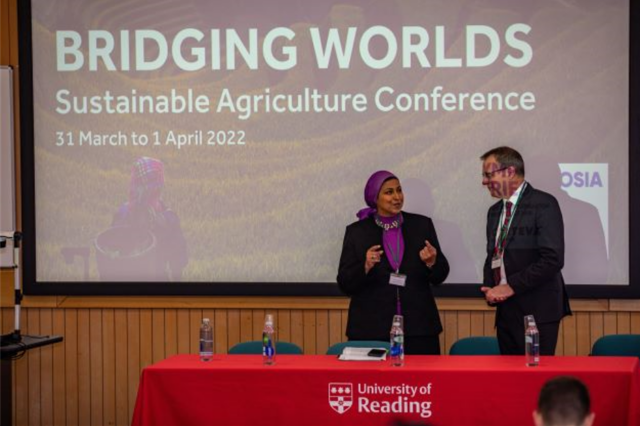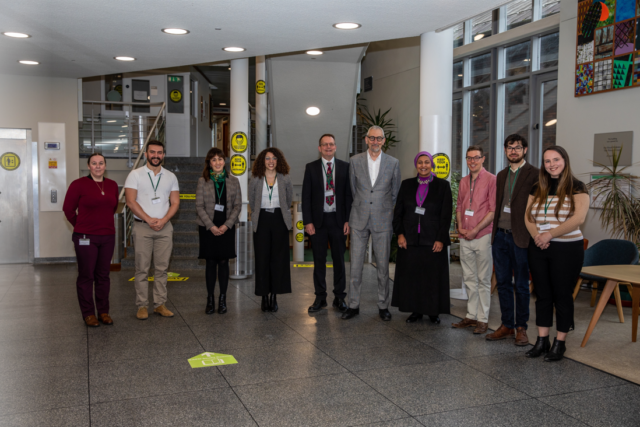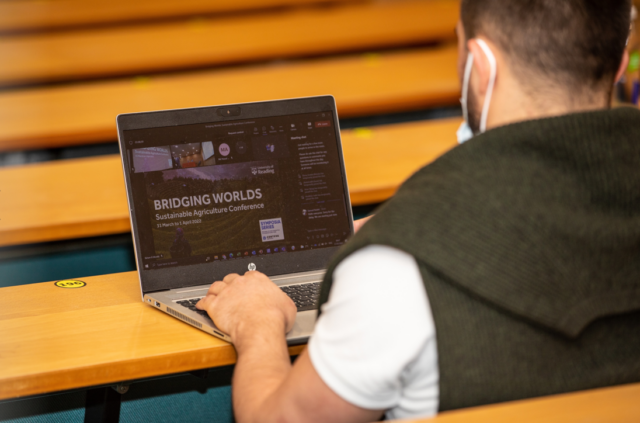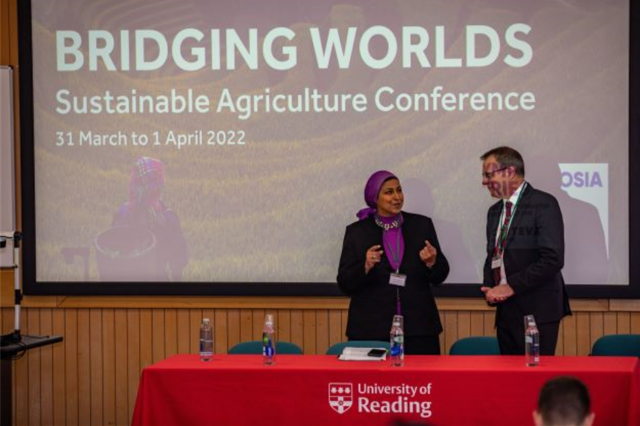During COP26 groups around the world gathered to protest the “unfair” and “elitist” climate action approaches of the world’s richest nations. The tone of the conference enraged many as developed nations, who had in 2009 promised to provide over $100 billion annually, had by 2019 only allotted roughly $20 billion. One of the dominant arguments is that the narrative of “shared responsibilities” is essentially a status-quo maintaining tool; developed nations have the opportunity to address poor and unsustainable environmental habits by building their economic capacities and capabilities, but that same opportunity is denied to those in the developing world, who do not possess the capacity to use greener and more sustainable tools to build their own economies. The developing world therefore is practically stuck and the world domination of the developed nations will be perpetuated and reproduced, resulting in chronic dependency.

The Bridging Worlds: Sustainable Agriculture Conference, sponsored by Corteva-Agriscience, took place on the 31st March and 1st April 2022 to consider how developing countries are taking these matters into their own hands and what sustainable actions they are adopting themselves to combat climate change and build back better. It was hosted and organised by six Early Career Researchers (ECRs) at the School of Agriculture, Policy and Development at the University of Reading, and considered the future of sustainable agriculture that both industry representatives and academics envision and predict.

The conference followed a hybrid approach to allow participants from around the world to present their research, engage in critical discussions, and network with potential future employers. The keynote address by Deputy Minister and Head of External Partnership at the Egyptian Ministry of Water Resources and Irrigation, Dr Tahani Sileet, opened our eyes to the problematic and worrisome future of freshwater resources and the urgency of climate action. Dr Sileet’s address highlighted the interconnectedness and inseparability of protecting freshwater resources, which she suggests “connects the world metaphorically and literally”. Her address intrigued our international student cohorts and online participants and many of them reported feeling “represented and heard”. Her work on the Water Pavilion Agenda which will be presented at the upcoming COP27 in Sharm El Sheikh in Egypt, revealed the mitigation efforts of 11 countries in protecting and navigating the critical issue of water distribution among the Nile-Basin countries, particularly in facing the challenges of food insecurity, poverty, and eco-political hardships. One of our esteemed faculty members, Dr Richard Ellis spoke about how “hearing the information from a localised narrative holds a certain power and credibility; that it remains with you long after you have listened to it”. Professor Ellis’ remarks highlighted one of the primary objectives of the conference: to bridge the world and provide a platform for expression and empower local voices to share their lived experiences and enlighten the listeners about it.

Our second keynote address by Ms Laura Kelly, the Director for Shaping Sustainable Markets at the International Institute for Environment and Development, complimented the address of Dr Sileet, by shedding light on the further challenges trade imposes on middle- and low-income countries. Ms Kelly’s address highlighted the essentialness of think tanks and non-governmental organisations in bringing the knowledge of researchers into the world of public policy. As Ms Kelly explained, to bridge the disconnect and in the hope that world leaders would make better informed decisions about the future of sustainable markets and trade, they must rely on researchers and their evidence-based outputs. Ignoring the scientific finding of researchers is indeed detrimental to our future. As one of our Development Finance Master’s students stated “Policy makers are ignorant. They make decisions that affect the most marginalised only informed by profit and greed. I learned a lot from Ms Kelly on what I can do to try and change that”.
The conference also enjoyed presentations from 14 ECRs on the different sub-disciplines and areas of expertise on the themes of ‘Climate Change and Agriculture and Sustainable Agriculture and Development’. We heard presentations from ECRs on Globalization and pollinators: the consequences of pollinator losses on international food systems; Farmers’ perception of food crop diversity and value in Zambia; Integrating Ecosystem Benefits in Hydroeconomic Modelling; Building Resilience: the need to document indigenous knowledge; Why are agri-food systems resistant to new directions of change?; Or why is it so hard to achieve sustainable development, inter alia. The presentations showcased challenges from all around the world and presented case studies from Kazakhstan, Spain, China, Zambia and the UK, which enabled stimulating discussions amongst in-person attendees and online participants, particularly with regards to the new ‘normal’ of the world post-COVID.
The discussions also inspired dialogues among participants and presenters regarding the Ukraine crisis. On the Sustainable Trade: Nature, People Policy panel, we were joined by Professor Simon Mortimer (Head of School of Agriculture, Policy and Development, University of Reading), Professor Rosalind Cornforth (Walker Institute, University of Reading), Professor Henny Osbahr (Co-Head of International Development, University of Reading), Dr Beatriz Hernandez (UNEP), and Dr Yiorgos Gadanakis (Agriculture Business Management Programme Director, University of Reading) who answered the difficult questions about the Ukraine crisis and what it means for the world food system security, the future of trade relations, with insights on the limitations the current global system suffers from and how to combat them with knowledge.
With COP27 fast-approaching will issues of global power dynamics as a result of unbalanced climate change contributions be addressed? Will developed nations meet their financial obligations and break the cycle of dependency? Or will COP remain the same?
To learn more about the conference and/or gain access to the materials used by our speakers and presenters, please contact the Conference Organising Team at corteva2022@reading.ac.uk. Please check out our conference schedule which includes the titles of our presentations. You can use this schedule to request specific materials.
Reham El Morally is Associate Lecturer in International Development in the School of Agriculture Policy & Development.

